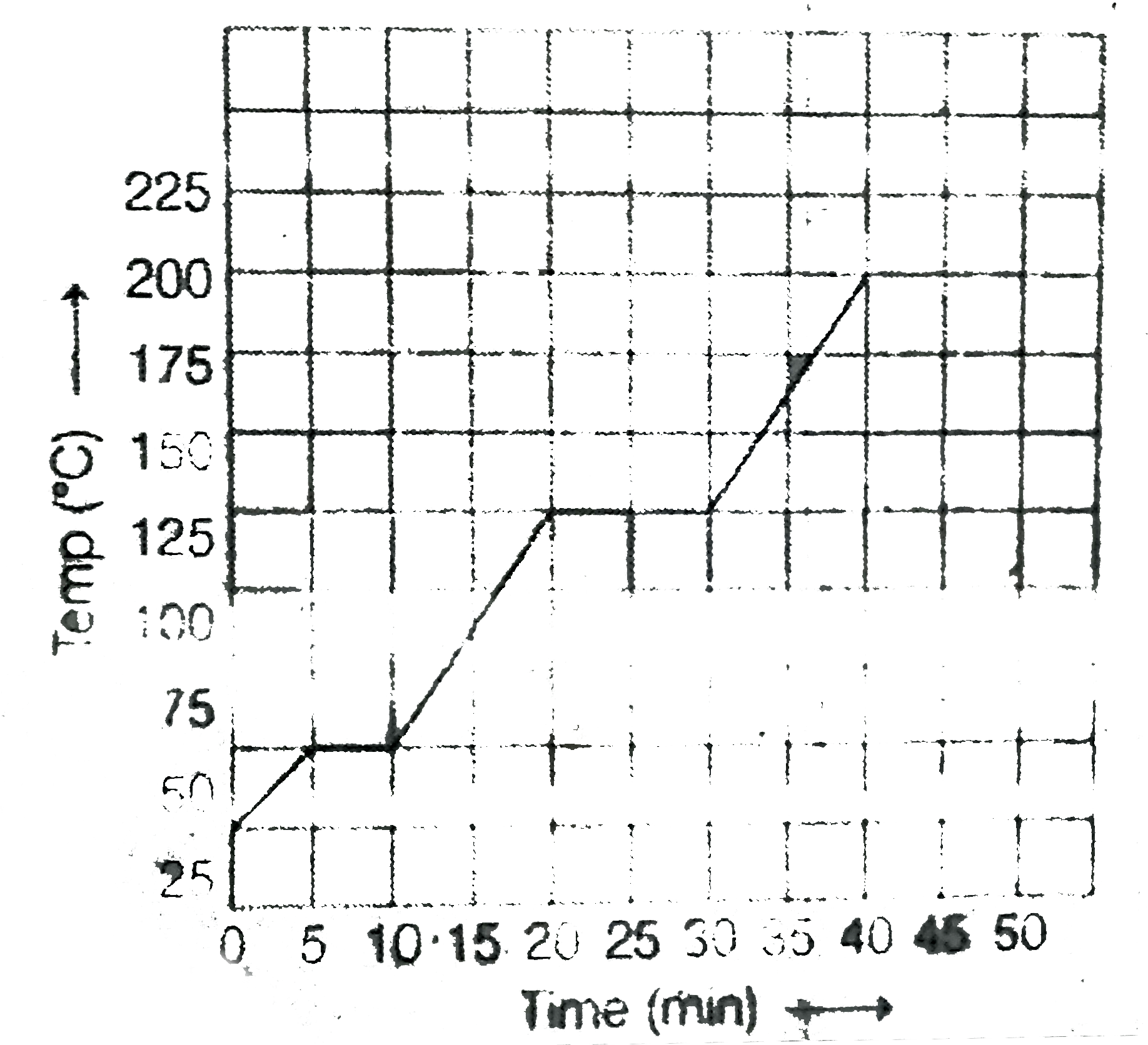The letent heat of vaporisation of a substance is always
greater than its latents heat of fusions
greater than its latent heat of sublimation
equal to its latent heat of sublimation
less than its latent heat of fusion
The correct Answer is:A
To solve the question regarding the latent heat of vaporization of a substance, we will follow these steps:
1. Understand the Concept of Latent Heat:
- Latent heat is the heat energy required to change the phase of a substance without changing its temperature. There are different types of latent heat, including latent heat of fusion (solid to liquid) and latent heat of vaporization (liquid to gas).
2. Identify the Phases:
- Consider water as an example. At 0°C, ice (solid) can be converted to water (liquid) at the same temperature, which requires latent heat of fusion.
- At 100°C, water (liquid) can be converted to steam (gas) at the same temperature, which requires latent heat of vaporization.
3. Compare the Energy Required:
- The latent heat of vaporization involves breaking the intermolecular forces between water molecules to convert them into vapor. This requires more energy compared to the latent heat of fusion, which only needs to overcome the forces holding the molecules in a solid structure.
4. Conclusion:
- Since the energy required to convert a liquid to a gas (latent heat of vaporization) is greater than that required to convert a solid to a liquid (latent heat of fusion), we conclude that:
Latent heat of vaporization>Latent heat of fusion
5. Final Answer:
- Therefore, the correct answer to the question is that the latent heat of vaporization of a substance is always greater than its latent heat of fusion.
- Latent heat is the heat energy required to change the phase of a substance without changing its temperature. There are different types of latent heat, including latent heat of fusion (solid to liquid) and latent heat of vaporization (liquid to gas).
- Consider water as an example. At 0°C, ice (solid) can be converted to water (liquid) at the same temperature, which requires latent heat of fusion.
- At 100°C, water (liquid) can be converted to steam (gas) at the same temperature, which requires latent heat of vaporization.
- The latent heat of vaporization involves breaking the intermolecular forces between water molecules to convert them into vapor. This requires more energy compared to the latent heat of fusion, which only needs to overcome the forces holding the molecules in a solid structure.
- Since the energy required to convert a liquid to a gas (latent heat of vaporization) is greater than that required to convert a solid to a liquid (latent heat of fusion), we conclude that:
Latent heat of vaporization>Latent heat of fusion
- Therefore, the correct answer to the question is that the latent heat of vaporization of a substance is always greater than its latent heat of fusion.
Topper's Solved these Questions
- THERMAL PROPERTIES OF MATTERBOOK - NCERT FINGERTPS ENGLISHCHAPTER - THERMAL PROPERTIES OF MATTEREXERCISE - Heat Transper
29 Videos
- THERMAL PROPERTIES OF MATTERBOOK - NCERT FINGERTPS ENGLISHCHAPTER - THERMAL PROPERTIES OF MATTEREXERCISE - Higher Order
8 Videos
- THERMAL PROPERTIES OF MATTERBOOK - NCERT FINGERTPS ENGLISHCHAPTER - THERMAL PROPERTIES OF MATTEREXERCISE - Calorimetery
4 Videos
- SYSTEM OF PARTICLES AND ROTATIONAL MOTIONSBOOK - NCERT FINGERTPS ENGLISHCHAPTER - SYSTEM OF PARTICLES AND ROTATIONAL MOTIONSEXERCISE - NCERT Exemplar
8 Videos
- THERMODYNAMICSBOOK - NCERT FINGERTPS ENGLISHCHAPTER - THERMODYNAMICSEXERCISE - Assertion And Reason
15 Videos
Similar Questions
The graph shown in the figure represents change in the temperature of 5 kg of a substance as it absorbs heat at a costant rate of 42 kJ min−1. The latent heat of vaporization of the substance is :

View SolutionThe latent heat of fusion of a substance is always less than the latent heat vapourization or latent heat of sublimation of the same substace. Explain.
View SolutionThe latent heat of fusion of a substance is always less than the latent heat vapourization . Explain.
View SolutionThe latent heat of vaporisation of water is 9700Cal/mole and if the b.p.is 100∘C, ebullioscopic constant of water is
View SolutionThe latent heat of vaporisation of water is 2240 J/gm. If the work done in the process of expansion of 1 g of water is 168 J, then increase in internal energy is
View Solution1 mole of H2O is vaporised at 100∘C and 1 atm pressure. If the latent heat of vaporisation of water is x J/g, then ΔS in terms of J/mole K is given by
View SolutionThe molar enthalpy of vaporisation of acetone is less than that of water. Why ?
View SolutionWrite four advantages of high latent heat of fusion of a substance.
View SolutionDefine heat capacity of a substance.
View SolutionCalculate the boiling point of water at 700mm pressure of Hg. The heat of vaporisation of water is 540cal'g.
View Solution
